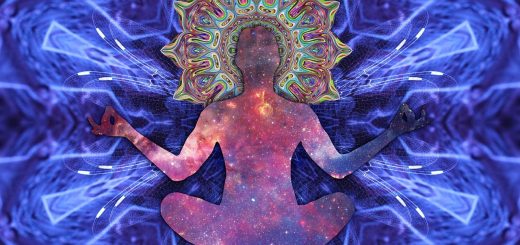Jnana Yoga: The Path of Knowledge and Wisdom

Before diving in, please note: This post is for informational purposes only. If you’d like to know more about how we approach topics, feel free to check out our friendly Disclaimer Page.
Hey there, amazing readers! 🖐️ Just a quick note: yes, we know there are a lot of ads here. Trust us, we get it—it’s not the prettiest look, but they help us keep this blog alive and kicking. Those pesky little ads cover the costs of all the behind-the-scenes magic, from hosting and tech stuff to creating content we hope you’ll love.
We’re committed to delivering quality posts, and your support (even just sticking around despite the ads) means everything to us. So, bear with us, and thanks for helping us keep the good vibes rolling. Now, on to the fun stuff! 😉
TRANSLATE BUTTON AT THE END OF THE ARTICLE
Understanding Jnana Yoga: A Brief Introduction
Jnana Yoga is one of the four main paths of yoga, focusing on the pursuit of knowledge and wisdom to attain spiritual enlightenment.
In Sanskrit, "Jnana" means knowledge or wisdom, and this path emphasizes self-realization through deep introspection and contemplation.
Unlike other forms of yoga that may involve physical postures or breath control, Jnana Yoga is more about understanding the true nature of the self and the universe.
It is considered the most challenging path as it requires a sharp intellect and a strong desire for self-inquiry.
History of Jnana Yoga: Origins and Evolution
Jnana Yoga has its roots in ancient Indian philosophy, dating back thousands of years.
It is closely associated with the teachings of Vedanta, particularly the Upanishads, which explore the nature of reality and the self.
The concept of Jnana Yoga was further developed by philosophers like Adi Shankaracharya, who emphasized the importance of discerning between the eternal and the temporary.
Over time, Jnana Yoga has been passed down through various spiritual traditions and continues to be practiced by seekers of truth around the world.
Key Concepts of Jnana Yoga Philosophy
The philosophy of Jnana Yoga revolves around the idea that the true self, or Atman, is identical to the ultimate reality, known as Brahman.
Key concepts include:
Self-inquiry: Questioning the nature of the self and seeking to understand its true essence.
Discrimination: Differentiating between the eternal and the temporary, the self and the non-self.
Detachment: Letting go of attachments to the material world and identifying with the eternal self.
Non-duality: Recognizing the oneness of all existence and transcending dualistic perceptions.
The Practice of Jnana Yoga: Methods and Techniques
The practice of Jnana Yoga involves various methods and techniques to cultivate knowledge and wisdom.
Some common practices include:
Study of scriptures: Reading and reflecting on sacred texts like the Upanishads, Bhagavad Gita, and works of Advaita Vedanta.
Self-inquiry: Questioning the nature of the self through introspection and contemplation.
Meditation: Cultivating a focused and clear mind to deepen understanding and insight.
Satsang: Engaging in spiritual discussions with like-minded individuals to deepen knowledge and share insights.
Benefits of Jnana Yoga: Mindfulness and Clarity
Practicing Jnana Yoga can lead to profound benefits for the mind, body, and spirit.
Some of the key benefits include:
Clarity of mind: Developing a deep understanding of the self and the world around you.
Increased mindfulness: Cultivating awareness of thoughts, emotions, and actions.
Emotional balance: Gaining insight into the nature of desires and attachments.
Spiritual growth: Moving closer to self-realization and liberation from suffering.
Jnana Yoga vs Other Yoga Paths: Contrasts
While all paths of yoga ultimately lead to spiritual liberation, Jnana Yoga differs from other paths like Bhakti Yoga (the path of devotion) or Karma Yoga (the path of selfless action) in its emphasis on knowledge and wisdom.
Jnana Yoga is suited for those with a more intellectual and introspective nature, while Bhakti Yoga may appeal to those who seek a more heart-centered approach to spirituality.
Each path offers a unique perspective and can be practiced independently or in conjunction with others.
Common Misconceptions about Jnana Yoga
One common misconception about Jnana Yoga is that it is solely an intellectual pursuit reserved for scholars and philosophers.
In reality, Jnana Yoga is accessible to anyone with a sincere desire for self-realization and can be practiced by people from all walks of life.
Another misconception is that Jnana Yoga is separate from other forms of yoga, when in fact, it can be integrated with practices like Hatha Yoga or Raja Yoga to deepen one’s spiritual understanding.
The Role of Guru in Jnana Yoga Tradition
In the Jnana Yoga tradition, the guru plays a crucial role in guiding the seeker on the path to self-realization.
The guru is seen as a spiritual teacher who imparts knowledge and wisdom to the student, helping them navigate the complexities of the spiritual journey.
The guru’s guidance is considered essential for overcoming obstacles, gaining deeper insight, and ultimately realizing the true nature of the self.
The relationship between guru and disciple is based on trust, respect, and devotion, with the guru serving as a beacon of light on the path to enlightenment.
Challenges of Practicing Jnana Yoga
While Jnana Yoga offers profound benefits, it also presents unique challenges for practitioners.
Some of the common challenges include:
Intellectual obstacles: Overcoming deeply ingrained beliefs and perceptions that may hinder self-inquiry.
Ego dissolution: Letting go of the ego’s identification with the self and embracing non-duality.
Emotional resistance: Confronting fears, doubts, and insecurities that arise during the process of self-realization.
Time commitment: Devoting regular time and effort to study, meditation, and contemplation.
Integrating Jnana Yoga into Daily Life
Integrating Jnana Yoga into daily life is essential for deepening spiritual practice and self-realization.
Some ways to incorporate Jnana Yoga into your daily routine include:
Morning reflection: Setting aside time each morning for self-inquiry and contemplation.
Mindful awareness: Cultivating awareness of thoughts, emotions, and actions throughout the day.
Study and reflection: Reading sacred texts and reflecting on their teachings.
Satsang: Engaging in spiritual discussions with others to deepen understanding and insight.
Famous Practitioners of Jnana Yoga
Throughout history, there have been many famous practitioners of Jnana Yoga who have made significant contributions to spiritual philosophy and practice.
Some of the notable figures include:
Adi Shankaracharya: A renowned philosopher and theologian who revitalized the Advaita Vedanta tradition.
Ramana Maharshi: A revered sage known for his teachings on self-inquiry and non-duality.
Swami Vivekananda: A key figure in the introduction of Vedanta and Yoga in the West.
Jiddu Krishnamurti: A philosopher and spiritual teacher who emphasized self-awareness and freedom from conditioning.
Resources for Learning Jnana Yoga: Books and Retreats
For those interested in delving deeper into Jnana Yoga, there are a variety of resources available, including books, retreats, and online courses.
Some recommended books on Jnana Yoga include:
"The Essence of Vedanta" by Brian Hodgkinson
"I Am That" by Nisargadatta Maharaj
"The Bhagavad Gita" translated by Eknath Easwaran
"Be As You Are" by Ramana Maharshi
Additionally, attending retreats or workshops led by experienced teachers can provide valuable guidance and support on the path of Jnana Yoga.
Online resources and communities can also offer a wealth of information and inspiration for those seeking to deepen their practice.
Conclusion
In conclusion, Jnana Yoga is a profound path of self-inquiry and wisdom that offers seekers a deep understanding of the self and the universe.
Through practices like study, reflection, and meditation, practitioners can cultivate knowledge and insight to attain spiritual enlightenment.
While Jnana Yoga presents unique challenges, the benefits of increased mindfulness, clarity, and spiritual growth make it a rewarding and transformative practice.
By integrating Jnana Yoga into daily life and seeking guidance from experienced teachers, individuals can embark on a journey of self-realization and liberation from suffering.
Embracing the teachings of Jnana Yoga can lead to a deeper understanding of the true nature of existence and a more meaningful and purposeful life.

The Enlightenment Journey is a remarkable collection of writings authored by a distinguished group of experts in the fields of spirituality, new age, and esoteric knowledge.
This anthology features a diverse assembly of well-experienced authors who bring their profound insights and credible perspectives to the forefront.
Each contributor possesses a wealth of knowledge and wisdom, making them authorities in their respective domains.
Together, they offer readers a transformative journey into the realms of spiritual growth, self-discovery, and esoteric enlightenment.
The Enlightenment Journey is a testament to the collective expertise of these luminaries, providing readers with a rich tapestry of ideas and information to illuminate their spiritual path.
Our Diverse Expertise 🌟
While our primary focus is on spirituality and esotericism, we are equally passionate about exploring a wide range of other topics and niches 🌍📚. Our experienced team is dedicated to delivering high-quality, informative content across various subjects ✨.
To ensure we provide the most accurate and valuable insights, we collaborate with trusted experts in their respective domains 🧑🏫👩🏫. This allows us to offer well-rounded perspectives and knowledge to our readers.
Our blog originally focused on spirituality and metaphysics, but we’ve since expanded to cover a wide range of niches. Don’t worry—we continue to publish a lot of articles on spirituality! Frequently visit our blog to explore our diverse content and stay tuned for more insightful reads.






